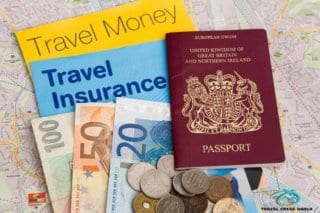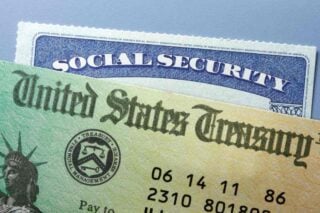
The Importance of Smart Financial Planning for Expats
 Moving abroad is an exciting adventure, but it requires careful financial planning to ensure a smooth transition. That said, knowing where to find reliable expat financial advice can be challenging.
Moving abroad is an exciting adventure, but it requires careful financial planning to ensure a smooth transition. That said, knowing where to find reliable expat financial advice can be challenging.
So to help you get started, here’s everything you need to know about managing your money while living and working abroad. From budgeting for your initial move to planning your ongoing expenses once you’ve settled in, we’ve got you covered.
Moving abroad is an exciting adventure, but it requires careful financial planning to ensure a smooth transition. That said, knowing where to find reliable expat financial advice can be challenging.
So to help you get started, here’s everything you need to know about managing your money while living and working abroad. From budgeting for your initial move to planning your ongoing expenses once you’ve settled in, we’ve got you covered.
Managing Your Finances Abroad
There’s a lot to consider when it comes to managing your money while living overseas. Therefore, it’s crucial to get your financial assets in order before you move, not after.
Start by understanding your current financial situation and determining how much you’ll need for your move. From there, you can create a detailed budget to manage your expenses carefully.

Find the Best International Insurance
- Compare multiple quotes and coverage options
- Work with an insurance expert at no additional cost
- Find the best plan for your needs and budget
After you arrive in your new country, you’ll need to learn how to open a foreign bank account, navigate currency exchange rates, and understand your tax liabilities.
There will also be ongoing expenses and overhead costs to manage once you've settled into your new life abroad. Therefore, it's important to stay on top of your finances to ensure you can support the lifestyle you desire.
Understanding Your Financial Situation
Money management should begin before you leave your home country. Once you have a clear picture of your finances, you can set some financial goals for the future.
Start by assessing your current financial situation, such as your income, savings, and debt. Ask yourself the following questions:
- How much money do I need to save for the move?
- Do I have any assets I’m willing to leave behind?
- Should I sell those assets before I move or put them in storage?
- Do I have any ongoing expenses I’ll need to continue paying in my home country while living abroad?
The answers to these questions will give you insight into whether you need to save more money, find a higher-paying job, or take care of any outstanding expenses before you move.
Creating a Budget
You can’t create a budget to move abroad without knowing the numbers. Don’t assume that the cost of living in your new country will be the same as it is in your current one.
For instance, U.S. citizens may be surprised to learn that the cost of living at home is more affordable than it is in the UK. The same may be true for non-U.S. immigrants who move to the U.S. from a country with a lower cost of living, such as India or Thailand.

With this in mind, be sure to research the cost of living in your destination country before you move. Base your budget on the monthly expenses you can expect for rent, utilities, groceries, transportation, and other essentials.
Also, keep in mind that the cost of living abroad can vary significantly between cities, even within the same country. Ideally, your budget should reflect the cost of living data for the specific city where you plan to live.
Setting Up an Emergency Fund
Emergencies can happen anywhere, but when you’re living abroad, you may not have the safety net of family and friends who live nearby.
Start saving money now to set up an emergency fund. It will give you peace of mind that no matter what happens, you can face any financial challenges that may arise.
Not sure how much to save? Experts recommend setting aside enough to cover the living expenses for yourself and any dependents for three to six months. You can use this handy emergency fund calculator to get a basic idea of how much you should set aside.
Financial Tools and Resources
Financial management apps are a great way to keep track of your finances. To get started, check out our list of the best apps for managing your money abroad.
You might also want to consider hiring an experienced international accountant to provide some expat financial advice. They have a fiduciary responsibility to help you manage your money wisely while living abroad.
Your expat financial advisor should have extensive knowledge of banking and tax regulations in both your home country and your country of residence. Make sure the person you hire is certified by the relevant local regulatory bodies.
Read More: How to Find an Accountant as an Expat
Banking Successfully in a Foreign Country
Banking in a new country doesn’t have to be confusing. Follow these tips to ease the transition.
Choosing the Right Bank
Should you use an international bank or open a local bank account in your host country? There are benefits to having both. International banks offer multi-currency accounts that make it easier to exchange money.
These banks often allow you to make ATM withdrawals in other countries without charging you a fee. On the other hand, local banks generally charge lower fees compared to international banks.

It might also be wise to keep an open bank account with savings in your home country in case your situation changes and you need to return unexpectedly.
Opening a Bank Account
Opening a bank account is easy in most countries. In general, you’ll need to provide a copy of your immigration documents, show proof of your local address, and deposit a minimum sum of money.
However, requirements can vary depending on the country, the bank, and your immigration status. Therefore, it's important to check what documents and information you will need in advance.
As a foreigner, you will also need to complete certain compliance forms and disclose your account details to your home country’s tax authorities.
Transferring Money Internationally
Finding the most cost-effective way to transfer money between countries is crucial when living abroad. Some banks may charge high transfer fees and exchange rates, which can impact your budget. That’s why many immigrants who send international money transfers prefer to use companies that specialize in doing just that.
Check out our list of the best money transfer companies. We compare these services based on the number of currencies they handle, their transfer fees and exchange rates, and how convenient they are to use.
Maintaining Accounts in Multiple Countries
Opening a local or international bank account makes life easier when you're living abroad. However, you can still benefit from keeping an account in your home country.
This allows you to store an emergency fund and other savings if something goes wrong while living overseas. It also makes it easier for family members to send money without the inconvenience of paying currency exchange fees.
Consolidating your money into one account might sound ideal, but limiting your finances to a single bank could be risky. Learning strategies to manage cross-border finances across multiple accounts can help you maximize your money while reducing tax liability.
Using Credit and Debit Cards Abroad
One easy way to pay for international expenses is by using a credit card. The right card can save you thousands each year, but the wrong one could cost you just as much.
Before using any credit card in a foreign country, check how much it charges for processing fees on foreign transactions.
Get our monthly newsletter filled with tips and information for people living, moving, and traveling outside of their home country.* *By submitting your email, you agree to receive monthly updates for expats, digital nomads, retirees, and more.
Check out our article on the best international credit cards for living abroad, where we highlight three top options known for their low fees.
Navigating Currency Exchange Rates
Currency exchange rates constantly change, which can make them challenging to understand. Here’s what you need to know.
Understanding How Currency Exchanges Work
A currency exchange rate is the value of one country’s currency compared to another’s. Depending on the countries in question, the exchange rate can be either fixed or floating.
Fixed exchange rates are set by an authoritative entity and are common in countries where the local currency and economy are less stable. Floating exchange rates, which are more common between two economically stable countries, fluctuate based on several variables. Several factors can influence a change in exchange rates.
The economic health of a country (which is based on indicators like employment data, gross domestic product, and import/export rates) will have the greatest impact. Other factors include interest rates offered by banks, inflation rates, and a country’s political stability.
Managing Exchange Rate Risks
Understanding the factors that affect a country's currency exchange rates can help you lower your risk of financial loss.
Forward contracts and options are two hedging strategies that can help you secure your financial goals, regardless of fluctuations in currency exchange rates.
Timing your currency exchanges, also known as leading or lagging, can help you take advantage of more favorable rates.
Monitoring and Adjusting Your Finances
It is important to keep track of currency rate fluctuations. You can find these rates on many platforms, but the two most reliable are XE.com and the U.S. Treasury Exchange Rate Tool.
Of course, while monitoring the currency exchange rates in your country, you will need to adjust your financial plans accordingly.
Taxes for Foreigners Living Abroad
Although no one likes to pay them, taxes are required in almost every country in the world, so you’ll need to know how the tax process works whenever you move abroad.
Understanding Tax Obligations
The tax responsibilities in your home country can differ significantly from those in your host country. Depending on where you come from, you may need to pay taxes in both locations.
That said, some countries have double taxation agreements or treaties that prevent you from having to pay twice. This can reduce the tax implications of living abroad or possibly exempt you from paying taxes in your host country.
Read More: The Complete Guide to Taxation for American Expats
Filing Taxes as an Expat
When filing tax returns as an expat, you will need to provide key documents and meet deadlines as you would back home.

However, because your situation is more complicated, it might be wise to hire a tax professional to help you arrange international filings instead of trying to do it yourself.
Read More: Finding Help to Navigate Expat Tax Matters
Maximizing Tax Benefits
There are specific tax deductions and credits available to expats that can help reduce your tax payments. Consult your tax professional to learn about the options available to you.
Again, don’t forget to explore any tax treaties between your home country and your host country and take full advantage of them.
Staying Compliant
Even with the help of a professional, staying informed about changes in your country's tax laws is your responsibility.
Non-compliance can have serious consequences, especially for immigrants. The IRS has specific requirements that American expats must follow when filing U.S. taxes.
Read More: Tax Planning for U.S. Expats Moving Abroad
Planning for Retirement Abroad
No matter where you plan to live now or in the future, retirement planning is essential. Here’s what you need to know to stay on top of it.
Assessing Your Retirement Needs
You may have used some great retirement investment strategies in your home country. However, when you’re new to living abroad, it can be harder to distinguish good investment advice from the bad. Just as you budget for your current needs, you’ll need to consider your cost of living in retirement.
For instance, healthcare costs can vary significantly between countries, and as you age, your medical needs may increase. Without proper health insurance, unexpected medical bills can eat into your savings, leaving you financially vulnerable.

Find the Best International Insurance
- Compare multiple quotes and coverage options
- Work with an insurance expert at no additional cost
- Find the best plan for your needs and budget
With this in mind, one of the most important factors to include in your retirement planning is ensuring you have comprehensive health insurance to protect you against future medical expenses.
Building a Retirement Fund
As an immigrant, it’s in your best interest to find a good investment advisor who understands how to invest in various countries and jurisdictions. Fee-based advisors are ideal, as they don’t work on commission and won’t try to sell you something you don’t need.
Wealth management for expats requires knowledge of the opportunities available in different countries. Using an international retirement account can be beneficial as they usually offer big tax breaks regardless of your country of residence.

Before making any big investments, make sure you understand how distributions from these accounts are taxed. If you’re an American with a 401(k) or IRA, look into the tax implications in your current country before making any contributions.
Investment management is one of the best ways to prepare yourself for retirement as an immigrant. Seek out the best savings opportunities in both your home and host countries. For example, mutual funds in the U.S. offer some of the best rates in the world.
Read More: Retiring Abroad
Social Security and Pensions
Americans may wonder if they can live off Social Security alone while living abroad. Researching the cost of living as a retiree in your host country will help answer that question.
Estate Planning
Make sure you create a will and estate plan that works on an international scale. At a minimum, you’ll need to understand how the inheritance laws work in your host country.
Financial Mistakes Expats Should Avoid
Moving abroad involves learning from mistakes, but you don’t have to learn the hard way. We’ve compiled a list of financial pitfalls to avoid. These include:
- Not filing tax disclosures
- Failing to account for double taxation
- Forgetting to research inheritance laws
- Not setting up an offshore bank account
- Neglecting insurance
Learn more about these five common financial mistakes that can cost expats thousands of dollars – and how to avoid them.
Safeguard Your Future
With careful research, planning, and the right expat financial advice, you can successfully manage your finances while living abroad. However, one of the most crucial yet often overlooked aspects of financial security is health insurance.
By factoring this expense into your budget, you're safeguarding not only your health but also your financial well-being.
There are various private international healthcare plans available to suit different needs and budgets. Explore your options and request a free quote from International Citizens Group to find the best global health plan for your exciting new chapter abroad.




